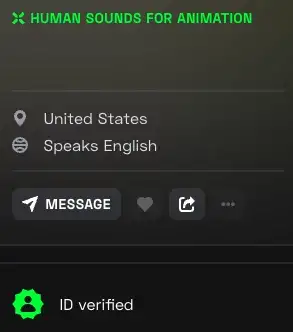Are You for Real?! Fake Profiles and Companies Pose a Threat to Employment in the Video Games Industry

by Maya Rand, CEO TheXPlace
Imagine that you are the sole proprietor and only employee of a company. You are doing your work and blissfully building your business, when one day you receive a call to provide a reference for a former employee. Baffled by this call, you do some research and discover that you have had phantom coworkers and employees for years through the guise of LinkedIn. This is the true story of one woman who was blindsided by this call. A deeper investigation unearthed over 300 people whom she had never known or worked with, falsely stating on their profiles that they had worked at her company. She took her findings to LinkedIn administrators, hoping they would take some action about the fraudulent activity. Unfortunately, no actions were taken and those profiles continue to exist. This incident is not unique to LinkedIn. Job boards, professional networks, freelancing platforms and social networks, which are all used today for professional networking, job posting and talent hunting, allow their users complete freedom of representation and in many cases that means false identities, fraudulent job offers, bullying and harassment.
Trust is at an all time low with more fake job opportunities, fake companies and fake professionals
Deceptions in the hiring process are on the rise, becoming an everyday reality for companies and professionals alike. Game developers applying for studio and project roles at various companies and projects have frequently discovered that either the posted job, project, or even the studio itself, turns out to be completely nonexistent. With 100% more NFT projects than this time last year, they are contributing to the challenge as they’ve been the source for much fraudulent activities — attracting bad actors who are willing to do anything to make a quick buck. Remote hiring has also contributed to the challenge, professionals are not visiting the office and have less opportunities to validate who they are working for. As a result,“Am I going to get paid?!” is the number one concern for talent in the industry. A second concern fueled by stories of toxic culture and harassment is “Who am I actually working for..?”.
Can you believe the integrity of the work presented?
Recently, our team was looking for a UI/UX designer. I came across the profile of a UI/UX designer on one of the popular job services and loved the work he presented. But when I ran it by our head of design, he immediately identified this work as belonging to a leading design studio in our space — it was plagiarized. Further research for candidates — revealed 5 additional candidates who had plagiarized their portfolios. Many of the systems being used to find talent and work today — job-recruitment sites, freelance websites, and social networks — are rife with false and plagiarized content both from professionals and studios, because there is no validation and oversight. Any claim of accomplishments or career track record can be made, and any opportunity can be promoted — whether they are true or not. These deceptions waste considerable time and money. Both parties are burdened with deciphering the truth, while still running the risk (and bearing the unfortunate consequences) if they happen to get it wrong.
Does anyone take action to remove ill behavior?
Users would love to regain trust in the networks that they use and they are willing to take action to remove fake profiles and call out ill behavior. On LinkedIn for example, users have shared countless experiences in a plea for the administrators to own their responsibility to protect people on their platform. They called out sexual harassment, identity snatchers, and bullying as major problems that dilute the power of creating authentic, powerful work connections. This was not the first time and, as before, no remedy was reported (as of March 2022). While user reporting could be helpful, the reality is that it is rarely dealt with effectively, if at all. Without reliable actions from these networks, users are left to fend for themselves.
What can be done? What do you do with bad actors?
What do you do with bad actors? Hold them back at the gate and own the responsibility to weed out ill behavior. The platform and community owner must protect the users, that is the only way to create authentic and powerful work connections. It’s also up to the platform owner to ensure that all accounts on a platform are real and content is represented with integrity — giving professionals and companies peace of mind. TheXPlace has been designed from the ground up as a trusted community of Game Dev Professionals and Game companies that will change the way we network and find work in the Video Games industry. We vet every professional, every company and we provide them with the tools to showcase themselves with integrity. We are veterans of the Video Games industry and our vetting heuristics combine industry insight with the latest tech to prevent false profiles, false credits, portfolios’ plagiarism and bad actors. Neither companies nor professionals should be able to hide behind fake accounts in the hiring marketplace. If we collectively demand a better solution, we can all benefit from a more transparent marketplace in which to search, hire and build with greater speed.
TheXPlace is changing the tide

The networks that are currently dominating the workforce marketplace have been focused on building numbers over maintaining the safety and integrity of their user base. They have demonstrated indifference toward bad actors and ghost postings, which has made them ineffective for people seeking qualified candidates and professionals looking for new positions. Although they feel frustrated, without better options, they continue to use these phony-riddled platforms.
Enter TheXPlace. A better option has arrived
TheXPlace approaches [staffing for] the Games industry in a whole new way. Rather than attempting to fill its rolls with users, regardless of their quality or validity, TheXPlace has been targeted and discerning in its approach to network building. In order to be invited in this new professional community, users are verified in several ways. TheXPlace does more than check identities. Our team is dedicated to ensuring that every entity in our database is real. We make sure the credits being claimed actually belong to one declaring ownership. Further, we understand that the people you have worked with in the past would most likely partner with you or refer you to your next opportunity. For this reason, we ask collaborators to verify shared working experiences and in turn help our professionals digitize their highly trusted referral network and extend their reach.
Just as Game professionals are thoroughly vetted before they can post their work or look for projects, companies using TheXPlace are also thoroughly researched. In an effort to improve the experience of working in the industry, there are a myriad of factors that TheXPlace reviews. We work to confirm that companies are financially viable to participate in the marketplace and that projects are real and properly funded. However, that is just the first step. TheXPlace also examines the leadership team and health of these companies, such as having a healthy workplace culture.
TheXPlace is addressing some serious issues in the Video Game industry. Job searching and recruiting have become a deeply frustrating process for all parties. As we have worked in the industry and understand how it operates, we have developed some of the best vetting heuristics and automation available. Our vetting heuristics are anchored in the understanding of the video games industry, its needs and how it operates. These proprietary processes are automated and evolving. Join us as we mend the way we work together in the Video Game industry. To request access to the Closed Beta, visit: thexplace.ai/join

